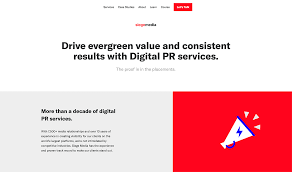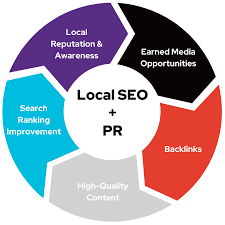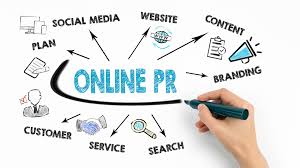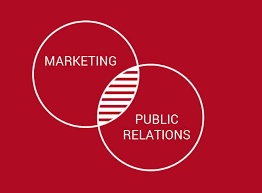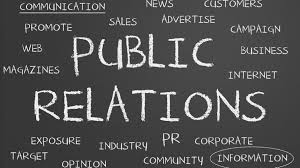Mastering Service PR: Building Trust and Reputation in the Digital Age
The Power of Service Public Relations
Service Public Relations (PR) plays a crucial role in shaping the reputation and perception of a service-based business. It involves managing communication and relationships with customers, stakeholders, and the public to build trust, credibility, and loyalty.
Effective service PR focuses on highlighting the value, quality, and benefits of the services offered by a company. It involves crafting compelling messages that resonate with the target audience and differentiate the business from competitors.
One key aspect of service PR is managing customer feedback and reviews. By actively engaging with customers, addressing their concerns, and showcasing positive testimonials, businesses can enhance their reputation and build a loyal customer base.
Service PR also plays a vital role in crisis management. In the event of a service failure or negative publicity, effective PR strategies can help businesses mitigate damage to their reputation and regain trust from customers and stakeholders.
Furthermore, service PR is essential for building thought leadership within the industry. By positioning key executives as experts in their field through media interviews, speaking engagements, and content creation, businesses can establish credibility and influence in their market.
In today’s digital age, online presence is crucial for service-based businesses. Service PR encompasses managing social media channels, online reviews, website content, and digital marketing campaigns to ensure a strong online reputation and visibility.
Overall, Service Public Relations is a powerful tool for service-based businesses to connect with their audience, build brand awareness, drive customer engagement, and ultimately achieve business success.
Understanding Service PR: Key Questions and Insights
- What is a job in PR?
- How do I create a service PR in SAP?
- What are services PR?
- What is a PR service?
- What is the role of PR in service?
- What is professional services PR?
- What are the services PR?
What is a job in PR?
In the field of Public Relations (PR), a job typically involves managing communication and relationships between an organisation and its target audience, with the aim of enhancing reputation, building brand awareness, and fostering positive public perception. PR professionals are responsible for creating and implementing strategic communication plans, developing engaging content, liaising with media outlets, handling crisis situations, and monitoring public sentiment. A job in PR requires strong interpersonal skills, creativity, strategic thinking, and the ability to adapt to evolving communication trends. Successful PR professionals play a crucial role in shaping public opinion, influencing stakeholders, and ultimately contributing to the overall success of an organisation’s communication efforts.
How do I create a service PR in SAP?
Creating a service PR in SAP involves following specific steps within the SAP system to initiate a purchase request for services. To create a service PR in SAP, you typically navigate to the relevant transaction code or path within the SAP interface, enter the required details such as service provider information, service description, quantities, and any other relevant data. Once all necessary information is inputted, you submit the service PR within SAP for approval and processing, ensuring that all procurement procedures and guidelines are adhered to. Properly creating a service PR in SAP is essential for effectively managing and tracking service-related procurement activities within an organisation’s SAP system.
What are services PR?
Services PR, or Service Public Relations, refers to the strategic communication and relationship management practices employed by service-based businesses to enhance their reputation, build trust with customers and stakeholders, and promote the value and benefits of the services they offer. Services PR involves crafting compelling messages tailored to the target audience, managing customer feedback and reviews, crisis communication strategies, thought leadership positioning, and maintaining a strong online presence. By leveraging effective Services PR strategies, businesses can differentiate themselves from competitors, establish credibility within their industry, and drive customer engagement for long-term success.
What is a PR service?
A PR service, short for Public Relations service, is a strategic communication practice aimed at managing and enhancing the reputation and perception of a company or individual. PR services encompass a wide range of activities, including media relations, crisis management, event planning, content creation, social media management, and more. The primary goal of a PR service is to build positive relationships with various stakeholders, such as customers, employees, investors, and the public. By crafting compelling narratives, engaging with the target audience through various channels, and maintaining transparency and authenticity in communication efforts, PR services help businesses establish credibility, trustworthiness, and brand loyalty in today’s competitive market landscape.
What is the role of PR in service?
Public Relations (PR) plays a pivotal role in the service industry by managing communication and relationships to enhance the reputation and credibility of service-based businesses. PR in service involves crafting strategic messages that highlight the value, quality, and benefits of the services offered, aiming to build trust and loyalty among customers and stakeholders. Through effective PR strategies, businesses can differentiate themselves from competitors, manage customer feedback, handle crises, establish thought leadership, and maintain a strong online presence. Ultimately, PR in service is instrumental in connecting businesses with their target audience, driving engagement, and ultimately contributing to business success.
What is professional services PR?
Professional services PR refers to the strategic communication efforts aimed at promoting and enhancing the reputation of firms that offer specialised services such as legal, accounting, consulting, and financial advisory services. This type of PR focuses on showcasing the expertise, credibility, and value that professional service providers bring to their clients. Professional services PR involves building thought leadership, managing relationships with key stakeholders, generating positive media coverage, and establishing a strong online presence to differentiate these firms in a competitive market. By effectively communicating the unique capabilities and industry knowledge of professional service providers, professional services PR plays a crucial role in building trust with clients and positioning these firms as leaders in their respective fields.
What are the services PR?
When asking “What are the services PR?” in the context of Public Relations, it refers to the range of communication services and strategies aimed at managing and enhancing the reputation of a business or organisation. These services include media relations, crisis communication, event planning, social media management, content creation, thought leadership positioning, community relations, and more. Service PR involves tailoring these services to meet the specific needs and objectives of a company in order to build trust, credibility, and positive relationships with stakeholders and the public.



